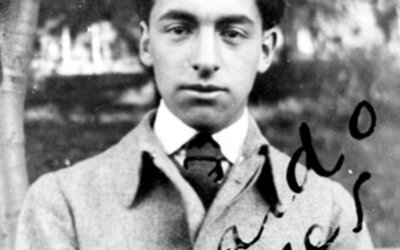Essays
Latest Reviews
Featured Interview
Newest Essay
Listening to Rilke Redux
By Wally Swist
“In Rilke’s praises, we find our own praise—of ourselves, of others, of mostly anything, actually. When anyone experiences an epiphany, that person wants to share that epiphany.”
On Translating Neruda
By Wally Swist
“To realize what is right in front of us all the time, and for us not to fully appreciate it, is just part of the gift of the legacy of Neruda’s odes, and among their nourishment we discover the astonishment of the awareness of living.”
Preface: Wild Rose Bush
By Wally Swist
“Almost no translation of “Lullaby” has disappointed me, but I have never found those translations adequate or fully accommodating of the rhythms, images, and lyrics that I felt, saw, and heard in the poetry.”
Personal Things: A Countertheme Sequence from Rilke’s Neue Gedichte 1907
By Art Beck
“Some months ago, a friend sent me a translation of a Rilke poem titled “Todes-Erfahrung,” he found in a British journal. I wasn’t familiar with the poem, and it piqued my interest enough to try my own version.”
In the Name: The Power to Be Moved
By Robert Stewart
“Who is this him? If there were an actual him, the poem would do him a disservice.”
Untranslatable Song: The Vertical Poetry of Roberto Juarroz
By Wally Swist
“For a poet who is also considered to be an aphorist, and who was a friend and colleague of Antonio Porchia, a master of the form, the poetry of Juarroz is more substantive than what is an oversimplification of his style and form.”
Best of Impossible Worlds: Miriam Sagan’s and Tom Laichas’ Poetry of Place
By Toti O’Brien
I have acquainted Miriam Sagan and Tom Laichas through individual poems found in journals and magazines—chance encounters that have urged me to look for more.
How to Tell a True Origin Story of a Novel
By Nina Schuyler
“My novel is about a female mathematician, Virginia, who uses artificial intelligence to bring back her dead lover. The two anecdotes I just told you might seem like the origin story of my novel. If someone tells you an origin story like this, don’t believe it.”
Translating Ungaretti
By Wally Swist
I first read Giuseppe Ungaretti in translation in the early 1970s when I picked up his Selected Poems in the Penguin Modern European Poets Series translated by Patrick Creagh. As is my tradition, every autumn I return to a writer’s work that I prized when I was a young man.
The Poetry of Astonishment: Rereading Garden Time by W. S. Merwin
By Wally Swist
I have been rereading Garden Time, W. S. Merwin’s latest collection and thought it best to share some notes about the book I made. Did you notice that there are no publication acknowledgments in the book?
The Power of Three: Some Martial “Triptychs”
By Art Beck
The 1st Century Roman epigrammatist Martial left us some 1500 extant poems. Classical scholars will sometimes produce monographs on the complementary makeup of one or another of his volumes, but “poetic” translators generally make their selection across Martial’s entire works, often based on a particular translator’s sense of compatibility with various individual poems.
Essay: How Not to Review a Translation
By Art Beck
Recently someone sent me a PEN America YouTube discussion on reviewing translations. The panelists were practicing translators, trade publishers, and reviewers from respected journals. It was, in many ways, a conversation on how to balance various interests.
Letter from Singapore
By Ho Lin
In Asia, most cities jolt to life at night, and Singapore is no exception. For one thing, it’s usually too damn hot to do anything during the day, except hit one of the public pools (until the inevitable afternoon thunderstorm hits).
A Hieronymus Litany: An essay on St. Jerome’s Epistles
By Art Beck
I. For the Love of God, Jerome?
Somewhere on the internet—I’m ashamed to say I’ve forgotten where or whose poem it was—I came across a poem that began with a Latin epigraph: Amor ordinem nescit.







